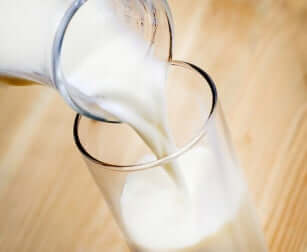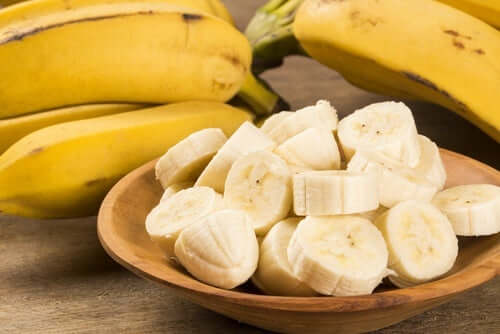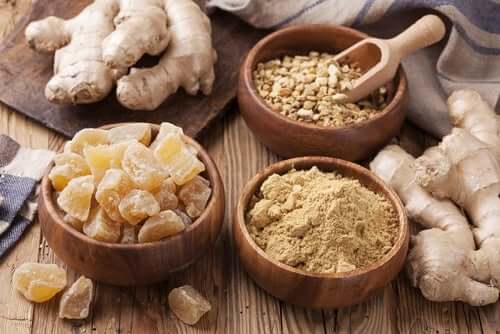5 Home Remedies for Bloating


Reviewed and approved by the pedagogue in physical education and nutritionist Elisa Morales Lupayante
This is more a condition than a discomfort; it makes people feel that “their stomach is full”. However, it isn’t due to food but from the accumulation of gases in the small intestine. Here are some home remedies for bloating.
When bloating occurs, the belly swells from the aforementioned gases. Likewise, other symptoms are also related to this problem.
If you’re suffering from it, don’t worry. In the following article, we’ll give you some tips and home remedies for bloating. They’re easy to apply and very effective!
What causes bloating?
In addition to the accumulation of gases, other factors can cause bloating. Among them, the following stand out:
- Constipation
- Anorexia
- Peptic ulcers
- Anxiety
- Smoking
- Eating excessively
- Fluid retention
- Menopause
- Premenstrual syndrome
- Indigestion
- Irritable bowel syndrome
Many times, bloating is accompanied by other symptoms, such as:
- Diarrhea
- Gas and bloating
- Cramps
- Lower back pain
- Difficulty breathing
- Abdominal pain
You should also read: 5 Natural Remedies That Relieve Indigestion
Tips to avoid bloating

In order to reduce the signs and enjoy good digestive health, you need to change certain food-related habits. Some recommendations are:
Pay attention to how you eat
Some foods can increase the amount of gas in the intestines. To relieve this symptom, you must reduce your intake of: beans, cheeses, soft drinks, cabbages, fried foods, sausages, tuna, tomatoes, and beer.
Rule out food allergies or intolerances

One of the reasons why many people suffer from bloating is because they’re allergic or intolerant to ingredients, dishes, or foods. Some of the most common food intolerances are:
- Gluten and wheat
- Lactose
- Eggs
- Fructose
Don’t swallow air or gas
One of the best tips to avoid bloating is to avoid drinking from a straw. Likewise, it’s advisable to avoid chewing gum and eating slowly and with your mouth closed.
Eat small meals several times a day
This will surely make you feel more relieved than if, for example, you opt for heavy dinners. It’s best to eat the same calories divided into bigger meals. Also, don’t forget to chew your food well.
Pass gas

This can be a problem if you’re at work or even at home, but we’re sure you’ll always be able to find a place to pass gas; the bathroom is the perfect option every time. This way, you’ll avoid further bloating, colic, or cramps.
To avoid burping, meanwhile, you can start your meals with something bitter, like radicheta or arugula leaves. This way, you’ll stomach acid will be less altered when it gets food.
The best home remedies for bloating
Beyond following those tips, it’s also a good idea to take advantage of the benefits of certain foods to reverse the situation. Here are some of them:
Bananas

Lemon tea
The hot water will help you eliminate toxins from your body and keep it hydrated. In addition, lemon is rich in vitamins B and C and contains several nutrients, such as calcium, phosphorus, and magnesium.
The acid this fruit contains stimulates food breakdown. To take advantage of the benefits of both, you have to drink lemon tea on an empty stomach every morning.
Anise

It has antispasmodic and carminative properties, which relax the digestive tract and help pass built up gases, respectively. Drinking a cup of anise tea is the best option to reduce bloating.
Fennel seeds
They’re effective in treating all types of digestive problems. They reduce bloating. This is due to its antimicrobial, diuretic, and carminative properties.
On the other hand, they relax digestive tract spasms. You just have to chew a handful of these seeds after meals or make tea with a tablespoon of fennel seeds (10 g) and a cup of water (250 ml). The process is the same as always: heat the water, add the fennel seeds, let steep, strain, and drink.
Mint essential oil
Apart from the oil, mint leaves are also useful, as they have antispasmodic properties. However, the former may be more effective.
Mint has the ability to relieve cramps and improve biliary, digestive, and intestinal functions. In turn, it reduces flatulence.
You can chew mint leaves several times a day or prepare a cup of mint tea with a tablespoon of mint leaves (10 g) and a cup of water (250 ml). Make it the same way as we explained with fennel tea.
Ginger

- Grated. In salads, soups, creams, or sauces.
- Powdered. In teas, infusions, smoothies, and juices.
- In capsules. You can find them in health food stores.
This article may interest you: The Benefits of Ginger and Chamomile Tea for Irritable Bowel Syndrome
Chamomile tea
This beautiful wild flower has many properties to improve digestive health, including bloating.
Chamomile has anti-inflammatory and antispasmodic properties, which help relieve symptoms and also help reduce heartburn. Prepare this infusion to take advantage of its benefits:
Ingredients
- 1 tablespoon of chamomile flowers (10 g or you can use a tea bag)
- 1 cup of water (250 ml)
Preparation
- Boil the water and add the chamomile.
- Let infuse for a few minutes.
- Sweeten to taste and drink.
With these home remedies for bloating, you’ll be able to relieve the discomfort it causes. In addition, you’ll indirectly contribute to your body’s proper functioning.
All cited sources were thoroughly reviewed by our team to ensure their quality, reliability, currency, and validity. The bibliography of this article was considered reliable and of academic or scientific accuracy.
- Abdominal bloating: Pathophysiology and treatment. Seo AY, et al. (2013).
jnmjournal.org/journal/view.html?uid=327&vmd=Full - Abdominal bloating: A mysterious symptom. Thiwan S. (n.d.).
med.unc.edu/ibs/files/educational-gi-handouts/Abdominal%20Bloating.pdf
This text is provided for informational purposes only and does not replace consultation with a professional. If in doubt, consult your specialist.








